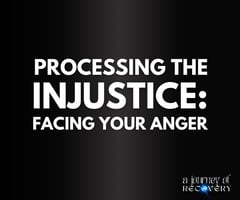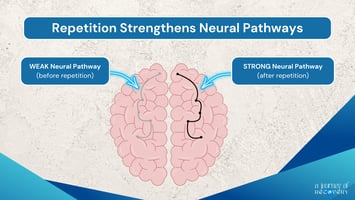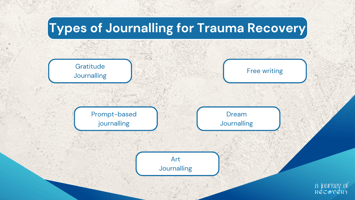Harness the power of journaling to navigate the complex emotions of anger and pain stemming from...
Overcoming Family Scapegoating: Journaling Prompts for Recovery
Discover the transformative power of journaling to heal from family scapegoating and reclaim your self-worth.
Understanding Family Scapegoating: The Hidden Trauma
Family scapegoating is a form of psychological abuse where one member is blamed for the problems and dysfunctions of the entire family. This individual becomes the target of negative emotions, criticism, and unfair treatment, often without any justifiable reason.
The impact of being scapegoated can be profound, leading to feelings of isolation, low self-esteem, and confusion about one's identity. Understanding this hidden trauma is the first step toward recovery. Acknowledging the pain and its source allows you to begin the healing process and reclaim your sense of self.
The Healing Power of Journaling: Why It Works
Journaling is a powerful tool for emotional healing. It provides a safe space to express thoughts and feelings that might be difficult to articulate. Writing about your experiences can help you process complex emotions and gain clarity on your situation.
Journaling is a form of 'authenticity' since it allows us to be 100% honest about how we are feeling. The reason this is important is that if we are NOT honest, then our emotions will tend to express themselves in other ways such as by drinking alcohol or yelling at the kids etc.
Moreover, journaling allows you to track your progress over time. By revisiting past entries, you can see how far you've come, which can be incredibly motivating. It also helps in identifying patterns in your feelings and behaviors, providing insights that can guide your healing journey.

Essential Journaling Prompts to Begin Your Recovery
To start your journaling journey, here are some prompts specifically designed to help you recover from family scapegoating:
1. Describe a recent situation where you felt unfairly blamed or criticised. How did it make you feel?
2. Reflect on your earliest memories of being scapegoated. What were the circumstances, and how did it impact you?
3. Write about a time when you stood up for yourself. What was the outcome, and how did it affect your self-esteem?
4. List your strengths and positive qualities. How can you use these to counteract negative beliefs instilled by scapego
ating?
5. Imagine a future where you have fully healed from scapegoating. What does your life look like, and how do you feel about yourself?
Creating a Safe Space for Your Journaling Practice
Creating a safe and conducive environment for journaling is crucial for effective healing. Choose a quiet, comfortable space where you can write without interruptions. This could be a cozy corner in your home, a park, or even a café. Personally, I journal in my bedroom since it is my 'safest' space.
Ensure that your journal is a private and secure place for your thoughts. You might want to use a physical notebook that you can keep in a safe spot or opt for a digital journal with password protection. The key is to feel secure enough to express your deepest thoughts and emotions honestly.
I use a small exercise book that cost about $1.
Integrating Journaling into Your Daily Routine for Long-Term Healing
Consistency is essential for journaling to be effective. Once I got into the habit of writing things down, I found it became my 'go-to' response as difficulties arose. This is because I can be completely authentic and honest in my journal in a way that I cannot necessarily be when talking to others, since I need to be mindful of their feelings and time etc.
Start with just a few minutes each time and gradually increase the time as you become more comfortable with the process. Remember, this is your personal journey, and there is no right or wrong way to journal. The goal is to make it a regular part of your routine to support long-term healing and self-discovery.


